Back to Energy Open CourseWare
Preview Online Program: NSC Electric Vehicle Technology Program
Audience: Instructional designers, Industry training and students
The National STEM Consortium academic certificate in Electric Vehicle Technology is built on a 30-semester-credit model and includes two tracks: (1) Electric Vehicle Development, and (2) Electric Vehicle Service. Graduates are prepared for product development positions in the automotive, communications, solar, wind turbine, and smart grid industries and service positions in the automotive industry. All of the courses underwent a thorough review by industry subject matter experts.
Subject Matter Expert Review ![]()
SME Reviews: NSC Electric Veihicle Program
Program Guide ![]()
NSC Program Guide and Teaching Toolkit
Courses In This Program
Advanced Energy Storage

Advanced Energy Storage is an introduction to energy storage systems for electric vehicles. It covers the fundamentals of energy conversion including thermodynamics, chemical energy storage in fuels and hydrogen, electrochemical systems for storing energy, battery chemistry in charging and discharging batteries, and the sustainability of advanced energy storage systems. This course also compares the environmental effects of current fossil-fueled energy systems and conversion processes with more sustainable systems using renewable energy and more efficient conversion processes.
Preview Online Course: Advanced Energy Storage
Download Materials: Advanced Energy Storage
Automotive Systems

Automotive Systems is an introduction to today’s automobiles, including Hybrid Electric Vehicles. Topics include exposure to various pieces of automotive shop equipment and details of the automotive service business. A working knowledge of basic automotive components and general maintenance necessary for vehicle operations will be emphasized. This course also promotes a basic understanding of alternative fuel and HEV vehicle technology.
Preview Online Course: Automotive Systems
Download Materials: Automotive Systems
Electric and Hybrid Vehicle Technology 1

Electric and Hybrid Vehicle Technology 1 provides an overview of electric and gas-electric hybrid vehicle fundamentals. It describes the fundamentals of the operation, diagnosis, and repair of electric and hybrid vehicles. Topics covered include EV and HEV batteries, fuel cells, electric motor controllers, invertors, and auxiliary accessories.
Preview Online Course: Electric and Hybrid Vehicle Technology 1
Download Materials: Electric and Hybrid Vehicle Technology 1
Electric and Hybrid Vehicle Technology 2

Electric and Hybrid Vehicle Technology 2 is an advanced level course that studies Battery Electric Vehicles (BEV), Hybrid Electric Vehicles (HEV), and Plug-in Hybrid Electric Vehicles (PHEV). Topics include advanced theory, diagnosis, and repair of BEVs and HEVs using manufacturer-specific diagnostic tools and equipment; troubleshooting PHEV technologies; and installing a PHEV conversion kit. This course consists of 12 lessons including corresponding laboratory exercises, and/or class activities, a midterm and final exam.
Preview Online Course: Electric and Hybrid Vehicle Technology 2
Download Materials: Electric and Hybrid Vehicle Technology 2
Electric Vehicle Data Acquisition, Sensors and Control Systems
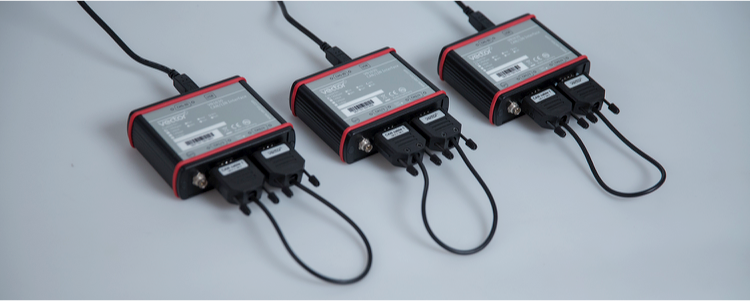
Electric Vehicle Data Acquisition, Sensors, and Control Systems emphasizes the sensors, microprocessors, and digital communications systems used in modern vehicles to optimize vehicle performance. Topics include a review of electrical and electronics theory, transistors, gates, vehicle network theory, vehicle embedded controllers and communications protocols, sensors, actuators, the major systems in internal combustion and electric drive or electric assist vehicles, vehicle emissions and emissions control systems, and selected topics in power control. Using network analysis tools, the student will gain a broad knowledge of the networks and communications used in modern automotive systems.
Preview Online Course: Electric Vehicle Data Acquisition, Sensors, and Control Systems
Download Materials: Electric Vehicle Data Acquisition, Sensors, and Control Systems
Electronic Technology 1

Electronic Technology 1 is an entry level course on the theory of series, parallel, and series-parallel D.C. Circuits. It is the first part of a two-part electronics course. Topics included in this course include using meters to measure and evaluate signals and voltages, identifying basic electronic components of actual and schematic symbols, and analyzing and solving circuits using the Superposition Theorem and Ohm’s, Watt’s, and Kirchhoff’s Laws.
Preview Online Course: Electronic Technology 1
Download Materials: Electronic Technology 1
Electronic Technology 2
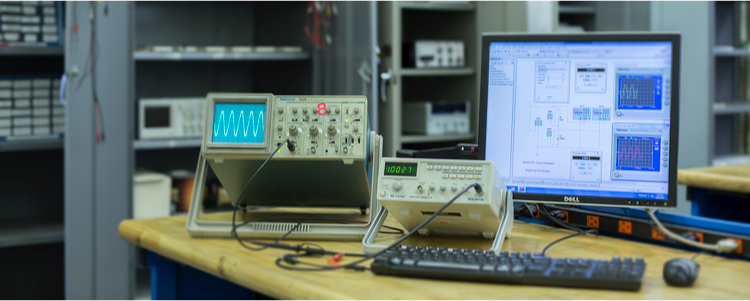
Electronic Technology 2 is a continuation of the entry level course on electronic technology. This course provides theory and practical experimentation of AC circuits they relate to alternators, sine waves, capacitance, inductance, RC, RL, and RCL series and parallel circuits, phase shift and filter, and phase lead and lag circuits. The oscilloscope, a function generator and meters will be used during the experimentation portion of the course.
Preview Online Course: Electronic Technology 2
Download Materials: Electronic Technology 2
Engine Fundamentals
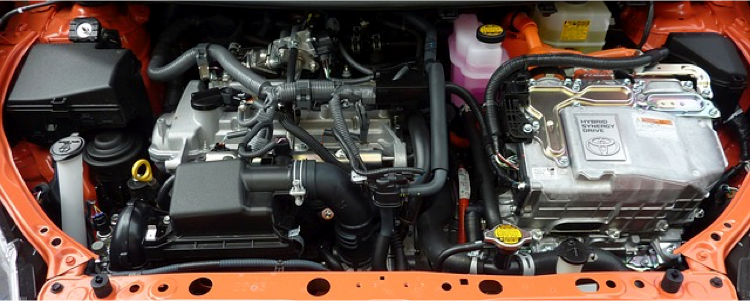
Engine Fundamentals covers automotive internal combustion engines (ICE). Topics include engine theory, operation, and various designs utilized today including related items such as gaskets, lubricants, sealants, and coolants. It also includes component inspection and precision measuring.
Preview Online Course: Engine Fundamentals
Download Materials: Engine Fundamentals
Engine Performance 1
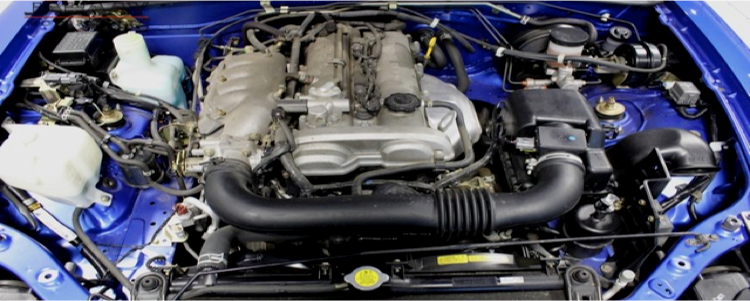
Engine Performance I provides an introductory study of the theory and operation of the Internal Combustion Engine (ICE) ignition system and the fuel system. Topics include: ICE ignition systems, engine controls and sensor, fuels systems, and service and replacement procedures and techniques.
Preview Online Course: Engine Performance I
Download Materials: Engine Performance I
Introduction to Electric Vehicle Propulsion Systems
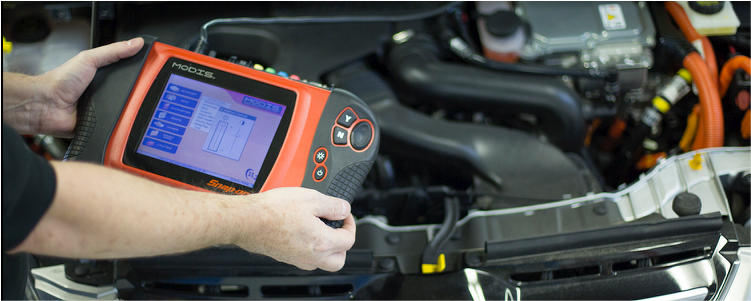
Introduction to Electric Vehicle Propulsion Systems is an introductory course that provides practical training in the theory and design of battery-powered electric vehicle propulsion systems. Topics include the rationale for electric vehicles, safety, battery technologies, basic battery testing, electric machine (motor) types, electric machine operation, power management, power inverters, DC to DC converters, and accessory systems. This course also covers potential future technologies in electric vehicle propulsion systems.
Preview Online Course: Introduction to Electric Vehicle Propulsion Systems
Download Materials: Introduction to Electric Vehicle Propulsion Systems
LabVIEW Basics 1

LabVIEW Basics 1 is an introduction to National Instruments’ LabVIEW graphical system design platform. Topics covered include creating, editing, and executing programs using LabVIEW functions in the LabVIEW environment. In this course, class assessments are accomplished with lab or class activities dispersed throughout the lecture and demonstration.
Preview Online Course: LabVIEW Basics 1
Download Materials: LabVIEW Basics 1
Motors and Controls for Electric Vehicles and Industrial Applications
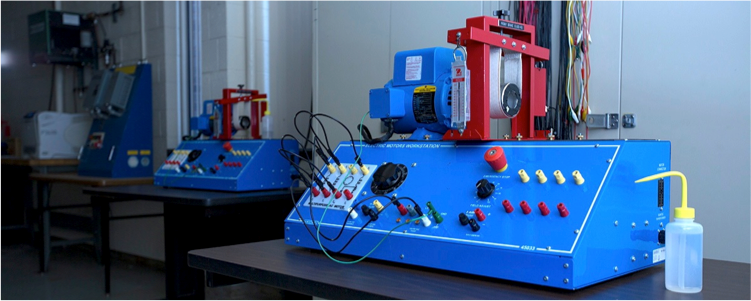
Motors and Controls for Electric Vehicles and Industrial Applications is an introduction to motors and motor controls with a focus on electric vehicle applications. It consists of 16 lessons including laboratory and class activities. Topics covered include DC motors and controls, AC motors and controls, important motor parameters, and specific applications in hybrid, battery, and fuel cell electric vehicles. A major portion of this course consists of a series of eleven vendor supplied hands-on laboratory exercises on rotating electric machines using motors, motor-control systems, and an alternator.
Preview Online Course: Motors and Controls for Electric Vehicles and Industrial Applications
Download Materials: Motors and Controls for Electric Vehicles and Industrial Applications
Principles of Alternative/Renewable Energies

Principles of Alternative/Renewable Energies covers the basic principles and history of alternative energy sources. It highlights the status of industry and government energy sources such as geothermal, wind, solar, biomass, fuel cells and others. Additional topics include providing a thorough discussion of Smart Grid technology, defining and comparing alternative and traditional energies, providing First Responder for Hybrid an Electric Vehicle safety training, and discussing evolving energy careers.
Preview Online Course: Principles of Alternative/Renewable Energies
Download Materials: Principles of Alternative/Renewable Energies
Technical Math – RCL Analysis

Technical Math – RCL Analysis is a study of the mathematic skills needed in the Electronic Technology courses. Topics include basic algebra, formula transposition, scientific notation, trigonometry, and special products and factoring. This course also teaches how to apply algebra and formulas to network simplification problems and simultaneous equations.
Preview Online Course: Technical Math – RCL Analysis
Download Materials: Technical Math – RCL Analysis
